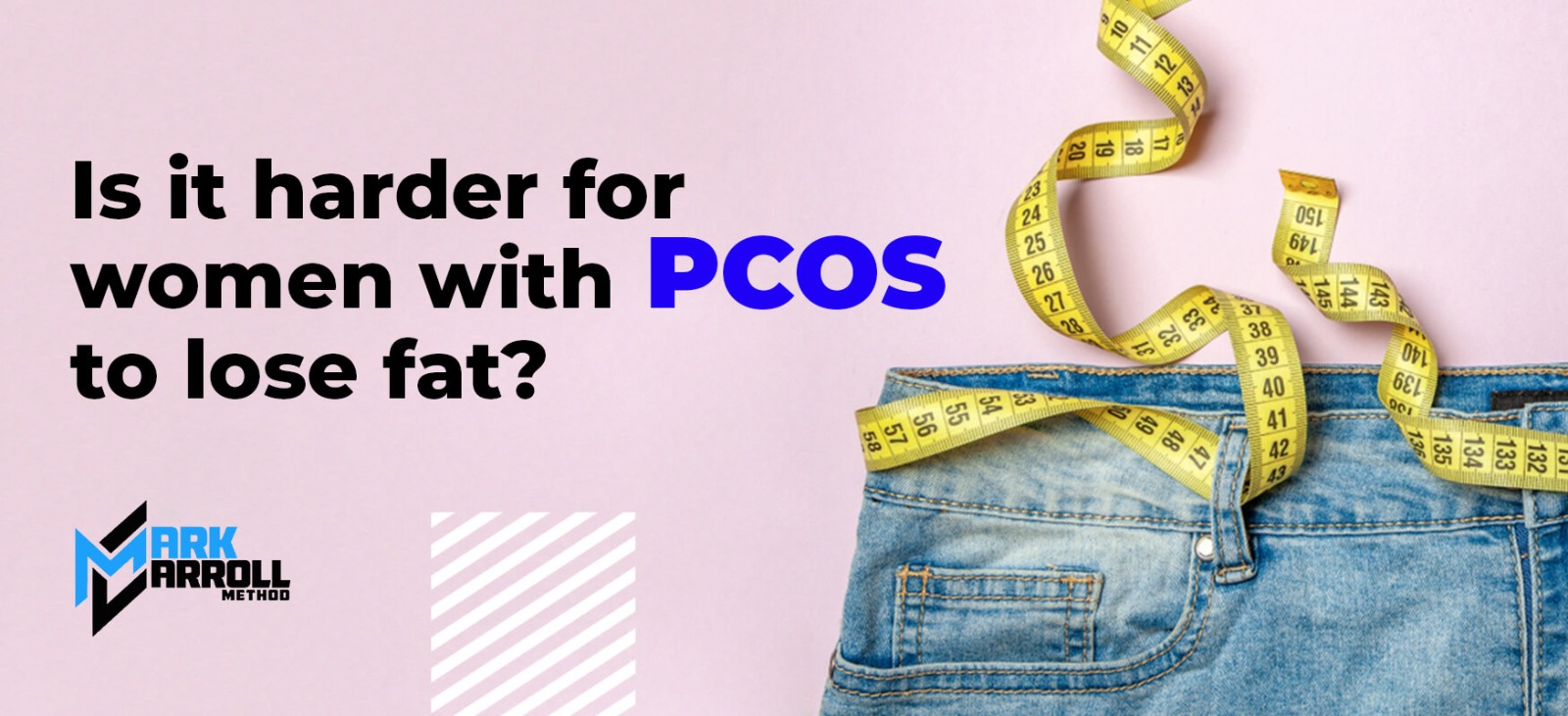Is it harder for women with PCOS to lose fat?

PCOS, or Polycystic Ovary Syndrome, is a hormonal disorder that affects women of childbearing age. The most common symptom of PCOS is irregular periods, which can cause fertility problems, weight gain, and acne. In addition, PCOS is also associated with an increased risk of diabetes and heart disease. Although there is no cure for PCOS, there are treatments that can help to manage the symptoms. These include lifestyle changes, such as eating a healthy diet and regular exercise and medication.
Nutrition and exercise play a massive role in the management of PCOS. This is because insulin resistance affects many other health conditions such as eye problems, heart disease and kidney disease. The insulin resistance seen in PCOS is also unlike that in type two diabetes because it also causes hyperandrogenism. Hyperandrogenism is an increase in the male sex hormone testosterone, which can impact a woman’s fertility.
As a women’s health coach, my main goal when working with women with PCOS is to improve insulin resistance. Improving insulin resistance has a flow-on effect, such as improving testosterone levels and fertility and decreasing cardiac disease risk factors. From a non-medical point of view, insulin resistance can be managed through regular exercise and fat loss, which brings us to the topic of this week’s LEARN blog.
Is it more challenging for women with PCOS to lose fat?
I have worked with many women with PCOS as a coach, and anecdotally I have found that some women with PCOS can have a more challenging time losing fat. This is supported by a study by Georgopoulos et al (2009) assessed 91 women with PCOS and biochemical hyperandrogenaemia and found that basal metabolic rate was 40% lower in the PCOS group — yes, 40%! This means she would require 40% fewer calories than a woman without PCOS to maintain her BMR (not to be confused with TDEE). However, other studies have also looked into this finding and could not report similar results.
With that said, a recent systematic review by Xiaohong Ding et al demonstrated that there may be a clear relationship between hypothyroidism and PCOS. The study outlined that women with PCOS also have a higher chance of sub-clinical hypothyroidism. What’s interesting about this study is that it is a bit of a chicken vs. egg situation. Meaning, is it PCOS that increases the risk of hypothyroidism or does hypothyroidism increase the risk of developing PCOS? This study suggests that having PCOS increases the risk of hypothyroidism. Further research is required before further conclusions are made, but this is interesting data nonetheless.
Why?
Because we know that untreated hypothyroidism decreases basal metabolic rate, and it will remain low if left untreated and unmanaged.
Outside of these findings, it appears that women with PCOS have dysregulation in the satiety hormone CCK, which indirectly may make it more difficult for them to reach satiety (and, therefore, impair adherence).
What does this mean practically?
Suppose you have PCOS, or you coach women with PCOS. In that case, it might be warranted to have thyroid levels tested to determine if medication might be needed to treat sub-clinical hypothyroidism. Women with PCOS often report having difficulty losing weight and feeling hopeless when it comes to losing fat. It is worthwhile considering that women with PCOS may have a downregulation in their BMR and require supportive strategies to help them stay in a deficit for long enough to see results. Refeeds and diet breaks might be helpful in this circumstance to break up the monotony of dieting on low calories over an extended period.
Optimising satiety is also essential to mitigate dysregulation in the hormone CCK. Therefore, volume foods and high-protein meals should be prioritised to help with adherence.
Yours in health,







